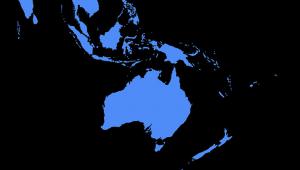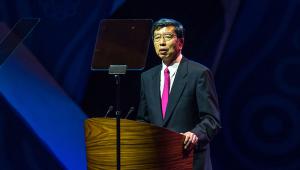Kundapur Vaman Kamath, president of the NDP, which was established in 2014 by the BRICS nations (Russia, Brazil, India, China and South Africa) met with ADB president Takehiko Nakao in Manila today.
A memorandum of understanding forms the basis of collaboration between the two banks, and Kamath said it was a “matter of great pride” for the NDB to form an alliance with the long-established ADB.
“There are several synergies between the two institutions and we hope this MoU will harness these and benefit both in the long run. This partnership will enable the NDB to leverage insight from the ADB and help us strive towards our common development goals,” he added.
Nakao agreed that the two banks would now work together to achieve sustainable, balanced and inclusive growth and poverty reduction in countries of common interest.
The institutions will share knowledge and co-finance a range of projects, particularly in areas of sustainable development including renewable energy, energy efficiency, clean transportation, sustainable water management and sewage treatment.
Established two years ago by the BRICS countries, the NDB board of directors approved its first set of loans on the sidelines of the International Monetary Fund and World Bank spring meetings in Washington last May.
Valued at $811m in total, the loans went towards renewable energy projects across the BRICS nations.
The NDB is intended to promote south-south cooperation and equitable power sharing for nations that are traditionally seen as the recipients of western development aid,
The China-led Asian Infrastructure Investment Bank, which also opened for business this year, holds a similar ethos, and presents itself as an alternative to the current system of development banks.
Both have stressed they are meant to complement, not compete, with established institutions, which alone do not have the resources to meet global needs.
Other development banks have celebrated their arrival however, and the AIIB has signed a range of cooperation deals with the ADB, the World Bank and the European Bank for Reconstruction and Development.
Speaking to reporters in India last week, World Bank president Jim Yong Kim praised the creation of the new banks and the challenge they present to older institutions.
“We now have to redefine what our specific advantages are and we have to get better at what we’re doing,” he said, according to India’s Business Standard.













